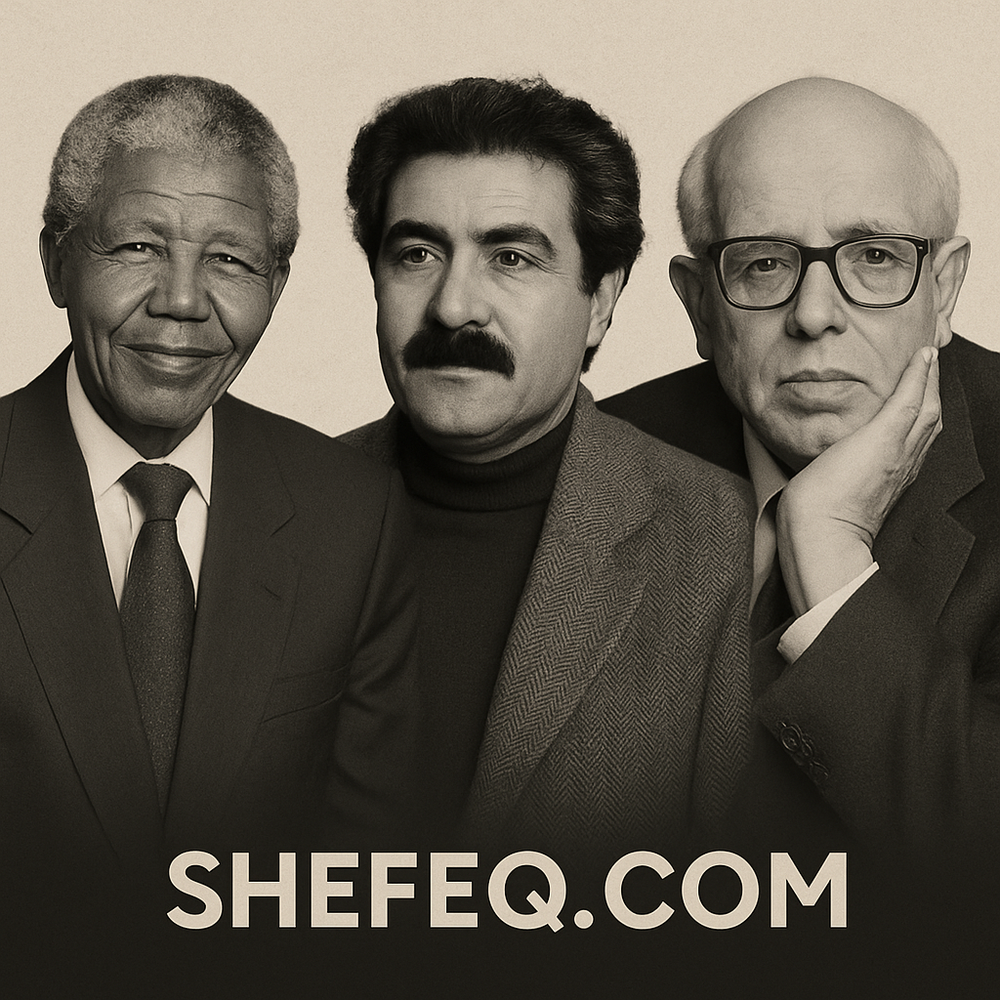Introduction
Some pages of history are written in blood, others with a pen, and some with the voices that were attempted to be silenced. There are people who are held physically behind walls, yet their spirits remain free. They can be imprisoned, but their thoughts, ideals, and names—turned into symbols—cannot be chained. These individuals carry freedom not just as a political principle, but as a spiritual truth. For them, freedom is a living spirit that grows stronger when oppressed.
This article presents an in-depth look into the lives of three individuals who, despite imprisonment, became symbols of freedom—whose voices reached millions and who are remembered not for their suffering, but for the hope and change they inspired: Nelson Mandela, Mehmet Said Serdam (a Kurdish intellectual), and Andrei Sakharov.
1. Nelson Mandela – A Triumphant Spirit Behind Bars
Nelson Mandela was a leader who fought against the apartheid regime in South Africa, spent 27 years in prison for his resistance, and upon release, taught the world a lesson in peace. Initially considering armed struggle, Mandela eventually believed in the power of reconciliation. For him, the fight was not only on the streets but within the soul.
During his years on Robben Island, Mandela was not merely physically confined—he grew in wisdom, read, wrote, and envisioned a new South Africa. He recognized the power of forgiveness. Upon his release, he chose not to incite hatred but to spread messages of peace and unity. His greatest victory was in his heart—the triumph of the idea of freedom.
In 1994, Mandela became the first black president of South Africa. But he became a true symbol in the hearts of the people because he did not succumb to the chains. He symbolized freedom not just politically, but as a human and spiritual value. His name lives not only in political history but in the conscience of humanity.
2. Mehmet Said Serdam – An Unseen Voice Behind the Lines
Mehmet Said Serdam, a Kurdish intellectual, poet, and writer, was imprisoned in mid-20th century Turkey for advocating the cultural and linguistic rights of the Kurdish people. His resistance was not through violence, but through words. His pen was his weapon, and his power came from faith in truth.
His writings were not mere political manifestos. In poetic language, he expressed the feelings of a suppressed people. His works were frequently censored and banned in Turkey. He was imprisoned several times. Yet each time, he emerged stronger and deeper. His words were the silenced voice of the people.
Serdam saw freedom not as a personal privilege but as a collective value. He continued to write after release—and would have continued even if he hadn’t been freed. His existence itself was freedom—he was the breath that kept the spirit of a silenced language alive. Though this breath was trapped behind walls for years, it one day blossomed again in open air.
3. Andrei Sakharov – A Conscience That Brought Light From the Atom
Andrei Sakharov, a Soviet physicist and human rights activist, was one of the creators of the hydrogen bomb. Yet later, he realized the dangers of government policy and could not remain silent. He dreamed of building the future not with force, but with morality. Starting from science, his path led him into the struggle for human rights.
In the following years, Sakharov opposed the Soviet regime’s repressions, suppression of free speech, and human rights violations. His open letters, speeches at international tribunals, and public appeals reflected his intellectual courage. His most powerful weapon was truth.
Although awarded the Nobel Peace Prize in 1975, the Soviet authorities exiled him to the city of Gorky, where he was kept away from public life for years. But his writings, speeches, and voice continued to resonate. He became not only a scientist, but a symbol of moral conscience.
Sakharov was a prisoner, but by building a bridge between science, ethics, and personal conscience, he became a global symbol of intellectual freedom. His voice reached millions with a sense of responsibility and truth. Wherever his name is mentioned, freedom of speech and honesty leave their mark.
Conclusion
Freedom is not just a physical space—it is the true home of the soul. Mandela, Serdam, and Sakharov were kept behind walls, yet their ideas reached beyond, awakening society. Though their voices were silenced, they illuminated the paths of freedom in the hearts of millions. They were silenced, but they did not stay silent. They were confined, but instead of locking themselves away, they opened closed worlds.
Question:
A person transforms not when they are free, but when they protect freedom. So, which freedom trapped behind walls are you willing to set free?

